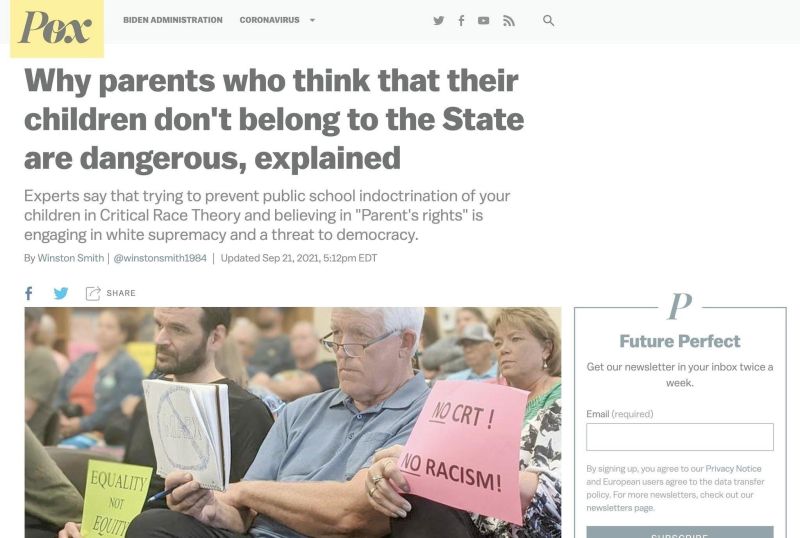TUESDAY, 5 OCTOBER 2021
I saw this satirical headline on Twitter: “Parents who think that their children don’t belong to the State are dangerous, explained.”
Of course, most people won’t accept this idea (right?) and the headline itself is from a non-existing website with satirical headlines. Yet, if an article like this were to appear on mainstream media like CNN or BBC, I bet at least 20% of readers would support the idea.
Imagine being the editor of the online media that publishes such an article. The person truly believes in the concept that children belong to the state. They are committed to pushing this idea.
Now imagine this editor is not alone. Hundreds of other editors, journalists, reporters, and presenters at high-profile media outlets agree with them.
Imagine thousands of academics also support the idea. So do TV and movie stars, and other celebrities – once it has been convincingly framed as “progressive”.
Parents who believe they have a right to educate and raise their children as they see fit, and that their rights supersede any claim the state has over their offspring, are presented in hundreds of TV shows, talk shows, academic journals and newspaper and magazine articles as “traditional”, “unbearably conservative”, “radical” and even “fundamentalist”. Because the idea that children belong to the state is being presented as cool and progressive, teenagers increasingly show their support to the idea, and in timeless fashion influence their younger siblings to do the same.
And yet, is the idea good? (Remember: the state claiming your kids is just a useful example.)
Is it possible for a fundamentally bad idea to receive broad support amongst those with the most powerful voices and with access to millions of minds through social media and educational spaces? And how many millions of readers and viewers would support such an idea simply because of its favourable framing?
______________________

______________________